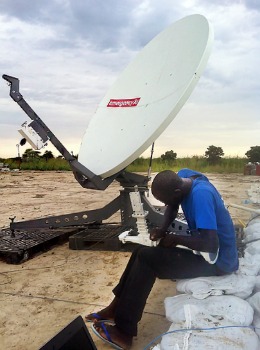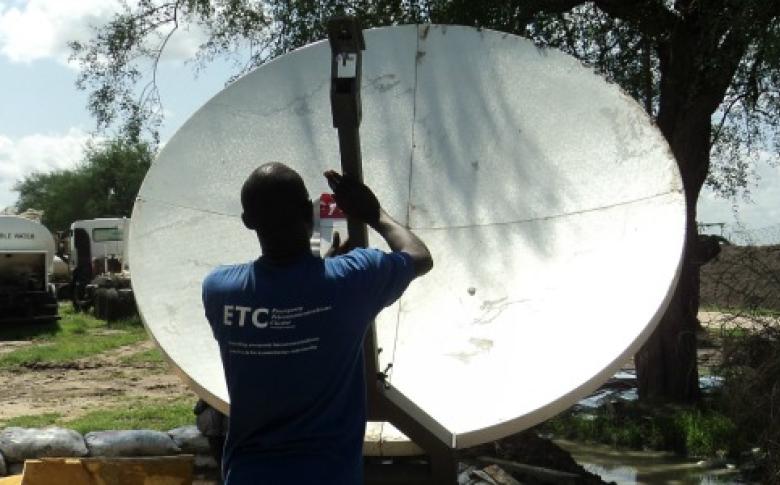
An Invisible Service for a Tangible Mission: Saving Lives

Being a service Cluster can sometimes mean being out of the spotlight and working behind the scenes. Being the Emergency Telecommunications Cluster (ETC) especially, means providing an intangible service, one that people don’t really pay attention to when everything is working as it should. If your job is success as ETC, most likely people will not readily notice it.
South Sudan’s struggle as the world’s new country and also one of the most underdeveloped has been well documented. Years of civil conflict and warfare have inhibited growth across all sectors, including communications technology. Hundreds of humanitarian organisations are present in the country, supporting the population with everything from food assistance and water to sanitation and hygiene, and all of them need to be able to communicate to support their operations. This is where the ETC comes in.

Activated in South Sudan in 2011 to provide essential communication services to the humanitarian community, the ETC has since become much more than this. It has evolved into a dedicated team of ICT experts committed to providing their colleagues with the best possible frontline ICT services, including security telecommunications, internet connectivity services, renewable power, technical support and training. When every second counts, as is the case in challenging environments, reliable ICT and telecommunications services save lives.
There is a backstage to the humanitarian response, where the strings are pulled to make this complex machine work. Being a service cluster means acting behind the scenes; it means pulling these strings. You may see an ETC technician climbing a radio tower in a conflict-affected area or installing internet connectivity equipment or renewable energy solutions in remote and harsh environments – this is how the ETC operates – behind the scenes.
Over 150 organizations are now using ETC services to carry out their life-saving tasks in South Sudan. Diana Smith, Programme Director for World Relief South Sudan, sheds light on how these services enable humanitarian actors on the ground to assist people in need more efficiently and effectively. “[The] people asking you to justify your services don’t understand what it is like to work in the deep field … In a day and age when it’s easy to get cynical about the competition within NGOs, the ETC equipment and support has been a very tangible way to promote cooperation and savings by pooled resources.”
The ETC provides communications to save lives, balancing the needs for rapid response and long-term sustainable solutions. This is the commitment to humanitarians in South Sudan today and to the people of South Sudan today and tomorrow. To do this, the ETC is investing in services that will not simply vanish once the humanitarian response reduces or leaves South Sudan but will be our legacy long into the future. The new Humanitarian Internet Support Project (HISP) is a case in point. HISP is a reliable, low-cost and, more importantly, long-term solution to meet the internet connectivity needs of humanitarians in remote and hard-to-reach locations in the country. This blog will take you through the progress we make with the HISP. Moreover, we will tell you other stories of our investments in renewable energy and the development of environmentally sustainable solutions.
The old saying goes ‘Out of sight, out of mind.’ Well, although ETC’s dedicated work in the field may remain in the shadows this year, the results of working towards enduring change in South Sudan will allow ETC to have its moment in the sun and ensure it remains in sight and in mind.
By Sofia Grivet Brancot, ETC Information Management Officer, South Sudan